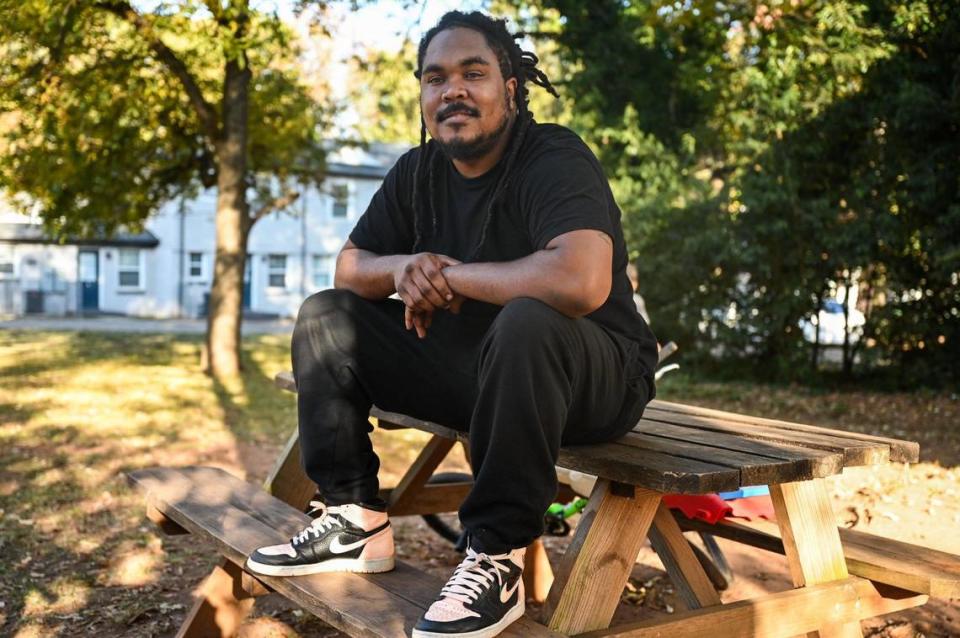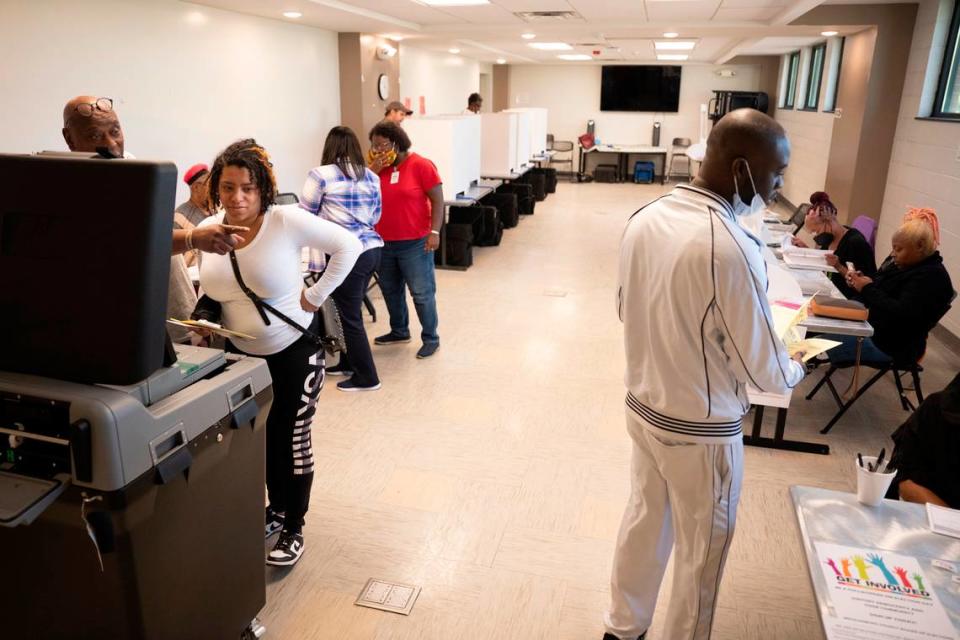They could vote in 2022 NC elections. But in 2023, their ‘voices don’t matter’
James Silva Jr. is a senior systems engineer who is active at his local church and, for years, worked in the prison system across the country as a volunteer to help inmates develop and refine their personal life skills.
The Mount Airy resident is making positive contributions to society, but he’s among thousands of formerly incarcerated North Carolina citizens who will not be able to vote on Election Day.
A trial court ruling last year that previously allowed people with felony records to vote in midterm elections was overturned in April by the North Carolina Supreme Court. The change occurred because of a lawsuit challenging the 1973 law preventing someone convicted of a felony from having voting rights restored while they are still on probation, parole, or post-release supervision.
Silva, 62, moved to North Carolina from Massachusetts in 2022 and, as of last year, could vote here. But at a State Board of Elections hearing last spring, Silva was told otherwise due to the legal change because he is on parole.
“I broke down. I said, ‘I don’t even know what to do ... this is unbelievable,’” said Silva, who has been out of prison since 1998 after serving nearly a 20-year sentence for second-degree murder, a crime he committed as a 17-year-old. “It’s another roadblock. We’re asking these people to learn these skills while they are in prison, but when they get out, we’re only going to go halfway with them.”

The N.C. Board of Elections voter file for Silva shows he registered to vote on Sept. 20, 2022, and cast a ballot in-person on Election Day in 2022. His voter registration has since been removed.
In the ruling written by Republican Justice Trey Allen on April 28, the court found that it is “not unconstitutional to insist that felons pay their debt to society as a condition of participating in the electoral process.”
“Our state constitution ties voting rights to the obligation that all citizens have to refrain from criminal misconduct,” Allen wrote. “Specifically, it denies individuals with felony convictions the right to vote unless their citizenship rights are restored ‘in the manner prescribed by law.’ No party to this litigation disputes the validity of Article VI, Section 2(3) of the North Carolina Constitution.
“This case is, therefore not about whether disenfranchisement should be a consequence of a felony conviction. The state constitution says that it must be, and we are bound by that mandate.”
Attorney suggests ruling disenfranchises Black voters

In the lawsuit, Community Success Initiative v. Moore, several voting rights groups argued the ruling was unconstitutional and that the formerly incarcerated should have their rights restored after leaving prison or jail. The case centered on whether the state law defining how people’s voting rights are restored is constitutional and whether it was discriminatory.
Daryl Atkinson was the lead attorney for civil rights groups and ex-offenders who sued. He and voting rights advocates estimate about 56,000 “North Carolinians are denied the right to vote” because of the partisan ruling he suggests specifically targeted African Americans.
Allen, though, reaffirmed in his April opinion that the General Assembly “did not engage in racial discrimination.”
North Carolina has more than 7.3 million registered voters. Of the total electorate, about 1.4 million are Black, according to North Carolina State Board of Elections stats. And with statewide elections forecast to be close affairs and the White House at stake in 2024, any change in voter counts could make a difference in how political power is gained.
“You think about communities where significant concentrations of African Americans and younger African Americans who made have been in contact with the legal system, it divests those communities of substantial equal voting power,” said Atkinson, who also is the co-director of Forward Justice, a nonpartisan organization in Durham that works to advance the causes of racial and social justice throughout the South. “That’s why it (the ruling) is important.”
The State Board of Elections said it updated voter registration applications to comply with the changes in North Carolina law. According to election officials, people serving a felony sentence must complete any supervision and pay all legal financial obligations before they can vote. They must still register to vote, even if they were previously registered to vote before being convicted of a felony.
“Having financial debt associated with a felony sentence — for example, fines, fees, or restitution — does not necessarily make someone ineligible to register or vote,” the State Board of Elections stated on its website. “Someone can have their probation period extended due to failure to pay such financial debt, in which case they are still not eligible to vote.”
‘Our voices don’t matter’
James Willingham routinely kept up with current events and wanted to be involved in the political process through voting while serving five and a half years in federal prison. After his release in 2022, that desire completely waned when he discovered this year he could no longer vote.
“It feels like our voices don’t matter because you have a record; you don’t have a right to talk,” said Willingham. “But at the same time, we still have opinions like everyone else. Not being able to vote is hindering us from trying to do better.”
Willingham, 29, who lives in Charlotte, is passionate about civic issues such as homelessness, unemployment and reducing recidivism rates. He wants to set an example for his 1-year-old son, Jahsiah, that real change can happen at the polls. However, hefty post-parole restitution that totals nearly $400,000 will keep him from voting until his financial obligations are met.
“(The government) will take the tax money, but I can’t vote,” he said. “I’m not crying about the crimes (that were committed), but we have people working out here making $15, $16, and $17 an hour and struggling to feed their families. “
Currently, those who can’t vote have no legal recourse. The only course of action for formerly incarcerated people who want to vote is working alongside advocates “to build enough power to change the law,” Atkinson said.
That will be tough, considering the Republican-dominated General Assembly will unlikely reverse course.
In the meantime, formerly incarcerated individuals like Silva have found other ways to contribute. While he can’t directly influence elections, Silva says he will spend Election Day serving others through planned volunteer work.
“It’s something I have to do,” he said. “I want to be involved.”

